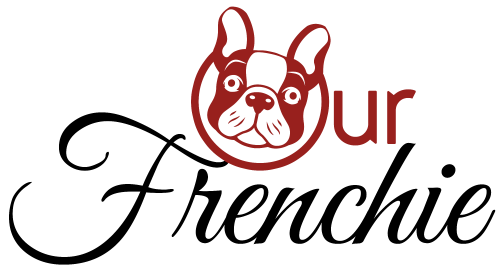About
Why Do French Bulldogs Howl Like Wolves?
Page Contents
French Bulldogs are known for their charming personalities and distinctive bat-like ears, but a lesser-known trait is their occasional howling, reminiscent of their distant wolf ancestors. This curious behavior can leave many pet owners puzzled, wondering why these small, domesticated dogs channel their inner wolf. In this article, we delve into the reasons behind this endearing yet mysterious habit, exploring the genetic, environmental, and emotional factors that may trigger a French Bulldog to howl. Understanding this behavior not only deepens our recognition for these beloved pets but also enhances our ability to care for them effectively.
Understanding the Howling Instinct
French Bulldogs, despite their compact size and domesticated nature, may occasionally exhibit behaviors reminiscent of their wild ancestors, such as howling. This behavior is deeply rooted in their genetic makeup and serves as a interesting reminder of their lineage. Howling, in the wild, is a form of communication used by wolves to convey messages across distances, establish territory, and maintain social bonds within the pack. While french Bulldogs are far removed from the wild, these instinctual behaviors can still surface.
Several factors may trigger howling in French Bulldogs. These can include:
- Response to Sounds: High-pitched sounds, such as sirens or musical instruments, can mimic the calls of other dogs or wolves, prompting a howling response.
- Separation anxiety: When left alone, French Bulldogs may howl as a way to express distress or to call out for their owners.
- Attention Seeking: Some French Bulldogs learn that howling can attract the attention of their human companions, reinforcing the behavior.
Understanding these triggers can help owners manage and respond to their dog’s howling appropriately. It’s critically important to recognize that howling is a normal part of canine behavior and, in most cases, is not a cause for concern. However, if howling becomes excessive, consulting with a veterinarian or a professional dog trainer may be beneficial to address any underlying issues. By acknowledging and respecting the natural instincts of French Bulldogs, owners can better cater to their pet’s emotional and physical needs.
Origins of the French Bulldog’s Howl
The distinctive howl of a French Bulldog can be traced back to its ancestral lineage. Although French Bulldogs are not known for their howling prowess like their wolf ancestors, they still retain some of the primal instincts that have been passed down through generations. These small, affectionate dogs are descendants of the English Bulldogs, which were bred with local ratters in France to create the lovable companion we know today.Despite their evolution into a more domesticated and less aggressive breed, the **howling behavior** remains a vestigial trait that occasionally surfaces.
Several factors contribute to this behavior:
- Communication: Just like wolves, French Bulldogs may howl to communicate with their owners or other dogs. This vocalization can express a range of emotions from excitement to anxiety.
- Attention-seeking: These sociable dogs thrive on human interaction and may howl to capture your attention, especially if they feel neglected or bored.
- Environmental triggers: Certain sounds, such as sirens or music, can trigger a howling response.This is a throwback to their ancestors’ instinct to respond to environmental cues.
Understanding the origins of this behavior can definitely help owners appreciate the deep-seated instincts that make French Bulldogs unique. While their howls may not echo through the wilderness like wolves, they serve as a charming reminder of the breed’s rich history and the enduring bond between humans and dogs.
Comparing Howls: Bulldogs vs. Wolves
- **Vocalization Purpose**: While wolves howl primarily for communication with their pack,marking territory,or locating one another,French Bulldogs howl for different reasons. These charming little canines might howl to express excitement, seek attention, or respond to certain sounds, like sirens or musical instruments. Their howls are more about expressing their emotions and less about survival instincts.
- **Sound Characteristics**: Wolves produce long, sustained howls that can travel over great distances. In contrast,a French Bulldog’s howl is often shorter,more sporadic,and can sometimes sound comical due to their unique vocal anatomy. Their shorter snouts and distinct facial structure influence the pitch and tone, giving them a howl that is uniquely theirs.
- **Social Context**: For wolves,howling is a group activity,often involving the entire pack in a harmonious chorus. French Bulldogs, however, are more likely to howl individually or in response to specific triggers. While they may occasionally join in if other dogs are howling, their motivation is generally more personal and less about group cohesion.
Environmental Triggers for Howling
French Bulldogs, despite their compact size and distinct appearance, can sometimes exhibit behaviors reminiscent of their wild ancestors, such as howling. This intriguing behavior can frequently enough be attributed to various environmental triggers that activate their instinctual responses.Understanding these triggers can help owners manage and even appreciate this unique vocalization.
One common trigger is the presence of certain sounds. **Sirens, musical instruments, or even other dogs howling** can prompt a French Bulldog to join in. These sounds may mimic the frequencies of a wolf’s howl, activating a deep-seated instinct to communicate or respond to their perceived ‘pack.’ additionally, changes in the surroundings, such as moving to a new home or the introduction of new pets, can create a sense of uncertainty or excitement, prompting howling as a form of expression.
Furthermore, some French Bulldogs may howl in response to emotional states. **Loneliness, anxiety, or excitement** can all lead to this vocal behavior.For example, a dog left alone for extended periods might howl to express their desire for attention or companionship. Conversely, a beloved owner’s return home might trigger a howl of joy. Recognizing these environmental and emotional triggers can help owners provide a more supportive and understanding environment for their pets.
Health Concerns Linked to Howling
When a French Bulldog starts howling, it might raise eyebrows, especially considering their usual demeanor. While howling can be a natural behavior, it’s essential to be aware of potential health concerns that might be linked to this vocalization. **Stress and anxiety** are common triggers. Changes in the environment, separation from their owners, or even a new pet in the household can cause distress, leading to howling as a form of communication.
Another health issue to consider is **pain or discomfort**.French Bulldogs, known for their brachycephalic features, can suffer from respiratory problems.If howling is accompanied by other symptoms such as coughing, wheezing, or difficulty breathing, it might indicate a more serious condition requiring veterinary attention. additionally, ear infections or other ailments might cause them to howl due to the discomfort they experience.
- **Stress and Anxiety**: Changes in environment, separation, new pets.
- **Pain or Discomfort**: Respiratory issues, ear infections, other ailments.
Being vigilant about these health concerns ensures that your French Bulldog stays happy and healthy.Regular vet check-ups and being attentive to changes in behavior are crucial steps in addressing any underlying issues that might potentially be causing your furry friend to howl.
Training Tips to Manage Excessive Howling
Managing excessive howling in French Bulldogs requires patience and consistency. One effective approach is to establish a daily routine that includes regular exercise and mental stimulation.French Bulldogs are intelligent and benefit from activities that challenge their minds, such as puzzle toys or obedience training sessions. Keeping them engaged can reduce boredom-induced howling.
Positive reinforcement is key when addressing howling behavior. When your French Bulldog remains quiet in situations where they typically howl, reward them with treats or affection. This reinforces the desired behavior and helps them understand that silence can be rewarding. It’s important to avoid scolding or punishing your dog for howling, as this can increase anxiety and exacerbate the problem.
- **consistency:** Stick to a training schedule and ensure all family members follow the same rules.
- **Redirect Attention:** When your dog starts to howl, redirect their focus with a favorite toy or command.
- **Create a Calm Environment:** Minimize triggers that cause anxiety. Soft music or white noise can soothe your pet.
- **Consult a Professional:** If howling persists, consider seeking advice from a professional dog trainer or behaviorist.
When to Consult a Veterinarian
While it’s common for French Bulldogs to express themselves vocally, there are times when howling could indicate an underlying issue that requires professional attention. It’s essential to pay attention to the context and frequency of your dog’s howling. If your French Bulldog begins to howl excessively or suddenly, it might be a sign of discomfort or distress.
Consider consulting a veterinarian if you notice any of the following:
- **Changes in Behavior:** If your dog’s howling is accompanied by other behavioral changes such as aggression, lethargy, or anxiety, it could be a sign of a more serious problem.
- **Physical Symptoms:** Look for physical symptoms like limping, scratching, or any signs of pain. These could be indicators that your dog is trying to communicate discomfort or illness.
- **Environmental Changes:** If the howling started after a important change in your household, such as moving to a new home or the arrival of a new pet, your French Bulldog might be struggling to adjust.
It’s always better to err on the side of caution. A veterinarian can definitely help rule out medical issues and provide guidance on how to address behavioral concerns, ensuring your French Bulldog remains happy and healthy.
to sum up
while French Bulldogs may not be known for their howling prowess, their occasional wolf-like howls can be attributed to their instincts, communication needs, and social interactions. Understanding these behaviors helps owners appreciate the unique ways in which these charming dogs express themselves. By recognizing the reasons behind their howls, we can better cater to their emotional and physical needs, ensuring a happier and more harmonious relationship. So, the next time your French Bulldog howls, remember it’s just their way of connecting with their inner wolf and communicating with you.

